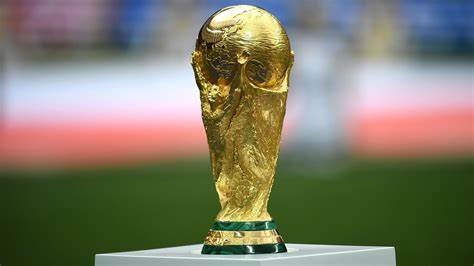The FIFA World Cup, a quadrennial exhibition that unites nations through the excellent game, holds a special place in the hearts of football fans. Beyond the energizing matches and iconic minutes, lies a captivating framework that decides the extreme champion: the World Cup bracket.
This seemingly simple grid plays an essential part in building expectation, cultivating contentions, and making unforgettable storylines.
From Seedings to Showdowns: How the Bracket is Born
The World Cup bracket isn’t an irregular lottery. A meticulous handle, supervised by FIFA, guarantees an adjusted and exciting competition. Groups are seeded based on their FIFA World Positioning, with the top-ranked groups put in diverse segments to avoid early clashes. This beginning situation sets the stage for potential dream matchups later in the knockout stages.
The draw ceremony, a televised event filled with expectation, divulges the bracket to the world. As each team’s title is picked, fans emit in cheers or moans, depending on the way their group faces.
This is where narratives start to take shape. Potential gathering of passing scenarios, where powerhouses clash in the introductory stages, rise. Cinderella stories of underdogs exploring a seemingly impossible path to glory ignite imaginations.
Decoding the Drama: A Journey Through the Bracket
The group stage is the opening act, where groups fight for a put in the coveted knockout rounds. The drama unfurls inside each bunch, as triumphs, draws, and routs make a complex web of changes.
Fans become match analysts, fastidiously studying objective distinction, head-to-head records, and disciplinary focuses to anticipate who progresses. Each objective celebrated, each tackle contested, carries immense weight as it shapes the destiny of teams in the group.
The knockout stages are where the magic truly unfurls. Win or go domestic – the pressure intensifies with each passing circular. The bracket becomes a visual representation of the remaining contenders, a stark update of the narrowing way to the extreme prize.
Upsets and penalties add another layer of energy. A single moment of brilliance or an appalling miss can rewrite the course of the tournament, sending shockwaves through the global footballing community.
Beyond the Results: The Bracket Fosters Rivalries and Legends
The World Cup bracket isn’t just about who wins. It’s a breeding ground for incredible rivalries. Teams drawn on inverse sides dream of a potential last standoff, a chance to settle old scores on the biggest stage. Brazil vs. Argentina, Germany vs. England – these clashes transcend eras, becoming a part of footballing folklore.
The bracket also paves the way for individual brilliance. Golden Boots contenders compete for the top scorer title, their names carved on the scoresheet with every goal. Goalkeepers change into heroes with game-changing spares. Legends are born not fair in the last, but throughout the tournament, their names forever linked to the way they took to glory.
The “Bracket of Death”: When Fate Deals a Tough Hand
Not all groups are fortunate enough to have a smooth ride. The feared “Group of Death” situation happens when two or more powerhouse groups are drawn into the same gathering. This makes an incredibly competitive environment where each point becomes crucial.
Whereas exploring such a group can be brutal, it can moreover be a favour in disguise. Emerging victorious from a “Group of Death” can send a solid message to potential adversaries in the knockout stages, establishing a group as a genuine contender.
The Psychological Advantage: Bracket Bias and Momentum
The bracket isn’t just a physical substance; it can play intellectual diversions too. Groups that discover themselves on an apparently “easier” way to the last can create a sense of complacency.
Conversely, teams battling through a challenging bracket might gain crucial force and certainty with each triumph, becoming a drive to be figured with afterward in the tournament.
The Final Frontier: The Culmination of a Dream
As the tournament progresses, the bracket shrivels, culminating in the extreme standoff – the World Cup last. Two groups, having explored a gauntlet of rivals, stand on the slope of glory.
The whole footballing world unites to witness the perfection of weeks of expectation. The last is a microcosm of the whole competition – a single coordinate typifying the dramatization, passion, and resilience that define the World Cup.
In Conclusion
The World Cup bracket is much more than just a grid. It’s a guide to radiance, a visual representation of dreams realized and smashed. It’s a confirmation to the persevering control of the beautiful game, where each match, every group, and each knockout circular contributes to a story that captivates billions.
So, the following time you witness the unveiling of the World Cup bracket, remember – it’s not just a schedule, it’s a promise of a month-long spectacle unlike any other.
FAQs
How are teams placed in the bracket?
Teams are seeded based on their FIFA World Ranking before a draw ceremony. This ensures an adjusted spread of solid groups throughout the bracket, avoiding early clashes between powerhouses.
What happens during the draw ceremony?
The draw ceremony is a televised event where group names are randomly picked, revealing their position in the bracket. This is where potential group rivalries and energizing storylines start to emerge.
How does the group stage work?
Teams are divided into groups, typically of four. They play each other once, with the best two teams from each bunch progressing to the knockout stages. Points, goal difference, and head-to-head records determine the last standings inside each group.
What’s the deal with the knockout stages?
The knockout stages are win-or-go-home affairs. Matches are single-elimination, meaning the loser is out of the competition. The pressure builds with each circular, culminating in the ultimate showdown – the World Cup final.
Can the bracket influence a team’s strategy?
Absolutely! Teams and coaches analyze the bracket to identify potential rivals and strategize appropriately. Sometimes, a calculated loss in the bunch organize can lead to a “easier” opponent later on.
To read more, click here



